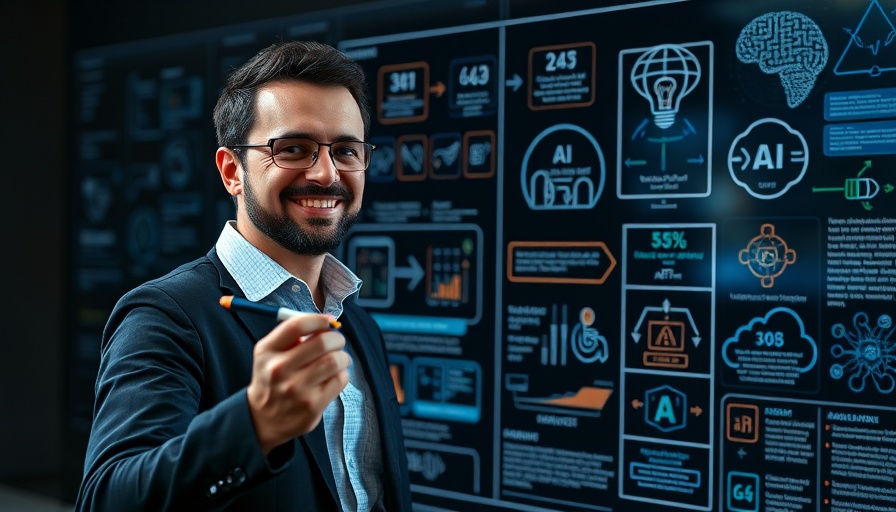
The Rise of AI Agents: What You Need to Know
Artificial Intelligence (AI) is no longer a futuristic concept. It’s quickly becoming a part of our daily lives, transforming how we work and make decisions. One of the most exciting developments in this field is the emergence of AI agents, autonomous systems that can perceive their environment and take actions to achieve specific goals. However, as these agents proliferate, the question arises: how can these diverse AI agents collaborate to tackle complex challenges? The answer lies in the Agent to Agent (A2A) protocol.
In 'A2A Protocol (Agent2Agent) Explained: How AI Agents Collaborate,' the video investigates how AI agents communicate effectively, prompting us to analyze the broader implications of this technology.
The A2A Revolution: Facilitating Collaboration
Imagine planning a vacation where one agent takes care of flights, another finds hotels, and yet another recommends local excursions. Instead of building all these agents individually, the A2A protocol serves as the intermediary that allows different agents to work together seamlessly. Developed by Google in April 2025 and now open-sourced by the Linux Foundation, this protocol establishes standards for how AI agents communicate, authenticate, and share data.
How Does A2A Work?
The A2A protocol works through a three-stage process: discovery, authentication, and communication. Initially, the client agent (the initiator of a task) discovers remote agents through an 'agent card,' a document that outlines the capabilities and skills of the remote agent. Once identified, authentication ensues, wherein the remote agent verifies the client's identity through security schemes laid out in the agent card. Finally, communication takes place via JSON-RPC 2.0, allowing for efficient data exchange over HTTPS.
Key Benefits of the A2A Protocol
The A2A protocol offers numerous benefits:
- Standardization: By creating a universal language for different AI agents, A2A fosters interoperability.
- Privacy: Autonomous agents can collaborate without revealing their internal workings, protecting both data privacy and intellectual property.
- Ease of Adoption: Leveraging existing standards like HTTP and JSON means businesses can adopt the A2A protocol without significant hurdles.
The Challenges Ahead: Security and Governance
Despite its numerous advantages, the A2A protocol faces challenges as it matures. Enhancements are still needed in security measures and governance, along with performance tuning and broader ecosystem support. For businesses and educators alike, understanding these challenges is crucial in navigating the evolving landscape of AI technology.
AI Policy Implications for Africa
As African nations embrace AI technology, the establishment of clear AI policy and governance for Africa becomes essential. The A2A protocol is a case study in creating standards that can foster innovation while safeguarding privacy. Policymakers, educators, and business leaders must engage in discussions regarding ethical guidelines, regulations, and collaborative frameworks to ensure that AI development benefits society as a whole.
Conclusion: The Future is Collaborative
The advent of the A2A protocol heralds a new chapter in AI's evolution, where agents can work together to solve problems that no single entity can tackle. As this technology continues to develop, AI practitioners in Africa have an opportunity to shape the conversation around responsible AI use. By embracing this protocol and engaging with the implications of AI policy, African businesses and communities stand poised to lead the charge in the global AI landscape.
Interested in learning more about the implications of AI for Africa? Now is the time to delve into how these technologies can reshape industries, societies, and governance across the continent.
 Add Row
Add Row  Add
Add 




Write A Comment